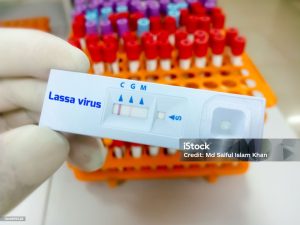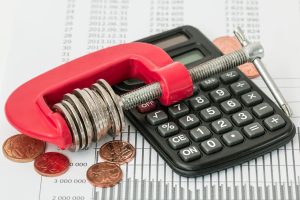
CSOs Lament Poor Funding Of Water Sector - CSR REPORTERS

Despite the signing of the water bill into law and the establishment of the Ministry of Lands/Water Resources, the water management agency, AK-RUWATSAN and the state waste management agency, over 77 percent of the population in Akwa Ibom State remains under threat of epidemic with poor access to water, hygiene and sanitation.
This came to the fore at the forum of civil society organisations (CSOs) including Akwa Ibom WASH Policy Clusters, IBOMWASH Plus, and supported by the United States Agency for International Development (USAID), to mark the World Water Day, yesterday in Uyo, the state capital.
The project director, IBOMWASH Plus, Pro. Gabriel Umoh, commended Governor Udom Emmanuel, for signing the Water Sector bill into law and creating the Ministry of Lands and Water Resources, to add to the already established water engineering and management agency, AK-RUWATSAN, but regretted that these efforts have near zero impact on the Water, Health and Sanitation (WASH) sector in the state.
With only one out of the 31 local government areas, Nsit Atai, being certified Open – Defecation – Free (ODF) status in 2019, Umoh, a professor of agricultural and development economics, said such negligence of the water sector has completely exposed the population to danger of water-borne diseases and stressed the need for serious reforms to reposition the sector.
It was gathered that the state is ranked 11 percent in ODF, with about 80 percent of the population without access to water and clean toilet facilities.
Despite these interventions by the state government, Umoh, who doubles as the chief executive officer (CEO), African Human Development Centre (AHDC), stressed the need for more political will and other stakeholders to bridge the gap through proper funding and strengthening of the state WASH policy.
He said, “In spite of the efforts so far by government, our work in the state WASH sectors has shown that there still exists huge gap to be filled if the state must keep to the mission of the United Nations’ sustainable sanitation for all in 2030, as well as achieve the Executive Order 009 targeting ODF status in 2023.
“The budgetary allocation to WASH sector has been very low; WASH budget as a percentage of the state’s annual budget has remained less than one percent. The state is yet to have a clearer ODF roadmap and WASH policy.”
However, the commissioner for lands and water resources, Captain Iniobong Ekong (rtd), who was represented by Mrs Asumpta Lawrence Udousoro, head of department (HoD) in charge of the water resources directorate, stressed the government’s commitment to addressing the WASH sector challenges.
He said, “The state government is putting up modalities to revamp the sector by rehabilitating the dilapidated infrastructure for adequate provision of water for its citizens. We are optimistic that in the nearest future, water will be provided in sufficient quantity and quality, and adequately managed for sustainability. This will also reduce incessant drilling of boreholes across the state, which could be catastrophic in the near future.”









